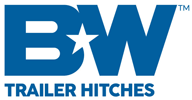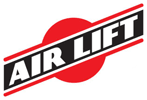 |
Learning Center About Track My Order Cart | |||
Talk to a Hitch Expert 1-877-507-0711 |
||||
|
We are an independent authorized dealer of Reese and other products. |
8am-5pm CT M-F |
|||

General Towing FAQs
Hitch Balls 101
All of our hitch balls are solid steel construction and come in a wide variety of sizes and finishes. All our hitch balls comply with safety specifications and requirements of VESC Regulations V-5 (Vehicle Equipment Safety Commisson has defined a testing method for a hitch that is Class IV or higher. If the hitch passes the various tests it is defined as VESC Regulations V-5 compliant).
Which Hitch Ball Do I Need?
The hitch ball you need is one with a load rating equal to or exceeding the Trailer Gross Weight Rating.
A hitch ball has 3 measurements you need to know to in addition to the GTWR (refer to image):

- A: Ball Diameter (inches across hitch ball)
- B: Shank Diameter (inches wide of the threaded shank)
- C: Shank Length (inches tall from top to bottom of shank)
Please refer to the chart below when trying to determine which class of hitch your vehicle can tow safely.

Choose From These Topics
What Are Class Ratings?
Always match your hitch ball to the weight class rating of your towing system. You can only tow as much as the lowest class rated item (hitch, hitch ball, drawbar, etc.) can handle. Class refers to how much weight can be towed.
Class I (to 2000 lbs) and Class II (to 3500 lbs) are for light loads. The receiver is a square hole 1.25 inch x 1.25 inch.
Class III (to 5000 lbs) and Class IV (to 10,000 lbs) can accommodate much larger trailers such as campers, boats, etc. A Class III/IV receiver is 2 inches square.








